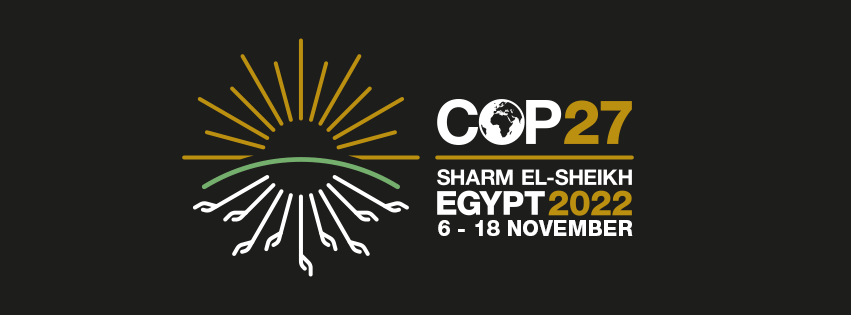
- Details
- By Debra Pritchard, ICUUW Board Member, USA
Climate change never affected my daily life until I lived for a decade on a Philippine island ...
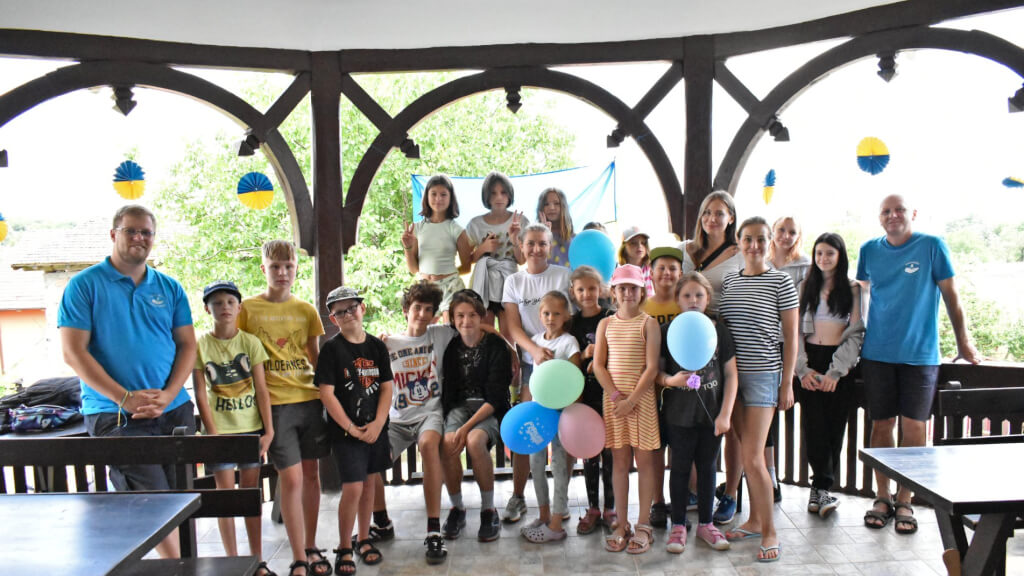
- Details
- By ICUUW Staff
From July 4 to 8, 2022, the Hungarian Unitarian Church – through its charity arm Gondviselés (in English: Providence) Organization – organized a summer camp for 21 Ukrainian children at the Unitarian Parsonage of Săndulești/Szind, Cluj/Kolozs County, Romania. The colorful program was led by three Ukrainian camp leaders and Rev. Zsolt Elekes, teacher of Unitarian religion at the Unitarian High School in Cluj/Kolozsvár.
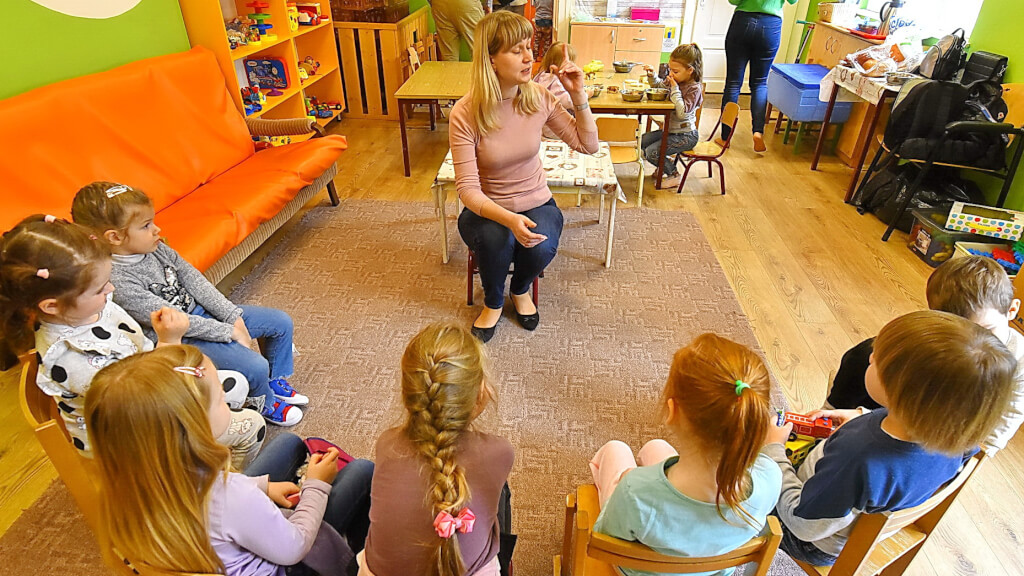
- Details
- By Zsófia Sztranyiczki, ICUUW Executive Director
Based on articles in two Hungarian-language newspapers in Romania.
© Photos by Iván D. Rohonyi and Iringó Tóth Gödri
On April 5, 2022, the Hungarian Unitarian Church – in collaboration with its Gondviselés (Providence) Charity Organization and the János Zsigmond Unitarian High School – launched a kindergarten class for Ukrainian refugee children within the premises of the Hungarian Unitarian Church's day care. This initiative is the first of its kind in Kolozsvár/Cluj, the third most populous city in Romania and the headquarters of the Hungarian Unitarian Church (HUC).
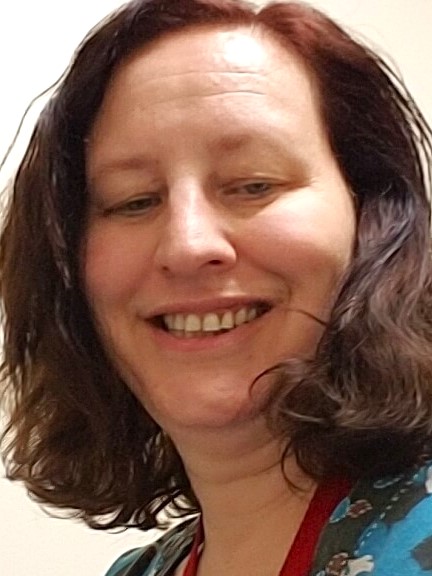
- Details
- By Karen Kortsch, ICUUW President
Greetings, Members and Friends,
As we prepare to hold our Annual Meeting of Members on June 14, there is a lot of buzz about our membership program. It became apparent, through brief discussions at our Tuesday Gatherings, that not all of our friends understood how the membership program works. We encourage you to read our Membership Policy and fill out a membership form. We would like to have each of you a member of the ICUUW family! If you are not yet a member, please complete the online form and commit to supporting us in all the ways that you are able.
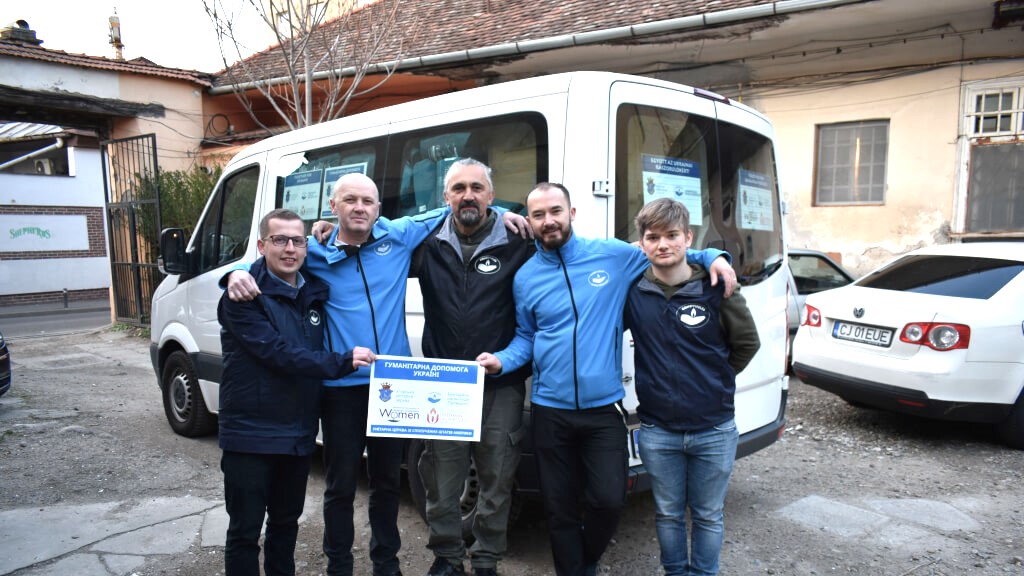
- Details
- By the leadership of the Providence (Gondviselés) Charity Organization and the Cluj Refugee Task Force
From the onset of the war in Ukraine, the Hungarian Unitarian Church and Providence (Gondviselés), its charity organization, have responded to the needs of refugees and those internally displaced. Below we present the development of this charity work in recent weeks (17 April–28 May 2022).
- Details
- By Zsófia Sztranyiczki, ICUUW Executive Director
On April 5, 2022, the Gondviselés (in English: Providence) Charity Organization of the Hungarian Unitarian Church launched a kindergarten class for 22 Ukrainian refugee children within the premises of the Hungarian Unitarian Church's Nursery School in Kolozsvár/Cluj. The contributions that Gondviselés received from various donors following the onset of the war – including funds raised by ICUUW through Faithify crowd funding and share-the-plate contributions – covered the cost to hire a certified kindergarten teacher and to provide a daily breakfast and warm lunch for the children.
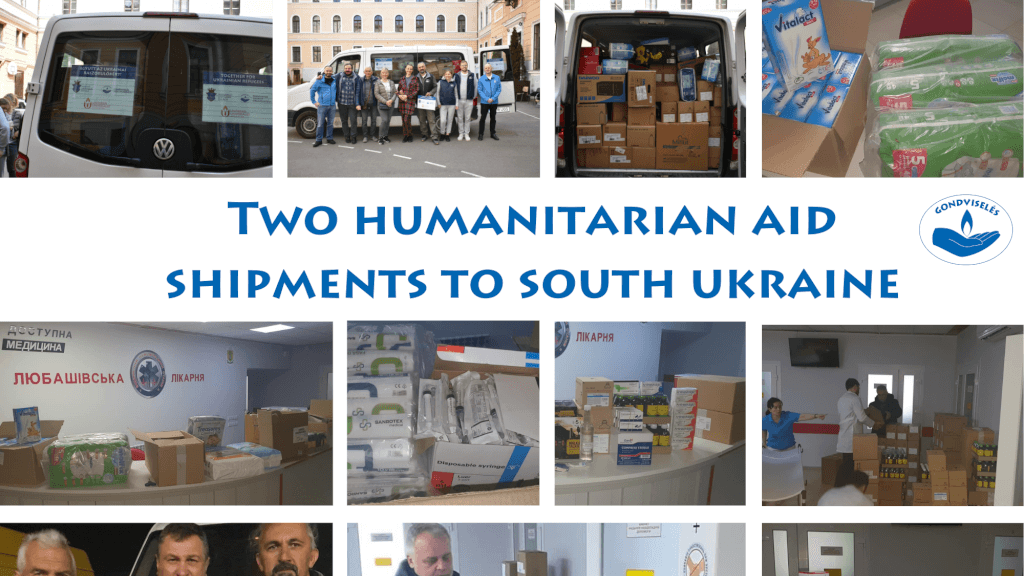
- Details
- By the leadership of the Providence Charity Organization and the Cluj Refugee Task Force
From the onset of the war in Ukraine, the Hungarian Unitarian Church and Providence (Gondviselés), its charity organization, have responded to the needs of refugees and internally displaced people in Ukraine. Below you will find the summary of their activities during the first month of the war and the development of their charity work in recent weeks (23 March - 17 April 2022). Donations to ICUUW's second round of fundraising effort will supply further assistance to families fleeing the war in Ukraine. We ask you to join our call for action to help ensure that women and children fleeing war in Ukraine know they are not alone at the most perilous moment of their lives.
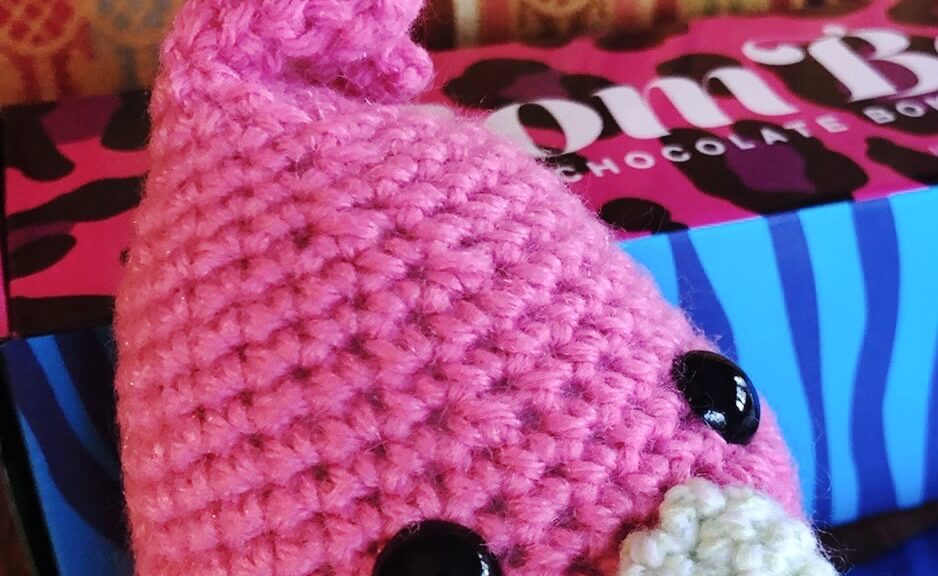
- Details
- By Jan Meslin and Zsófia Sztranyiczki
A Message of Welcome, Hope, and Resilience
In January 2022, ICUUW successfully completed its first U.S. project, focusing on building capacities and resilience of asylum-seeking women and their children. Funded in part by the UU Funding Program, the project also created tangible opportunities for UUs to build and continue the relationships with asylum-seeking families and to learn more about the U.S. immigration (deportation) system.
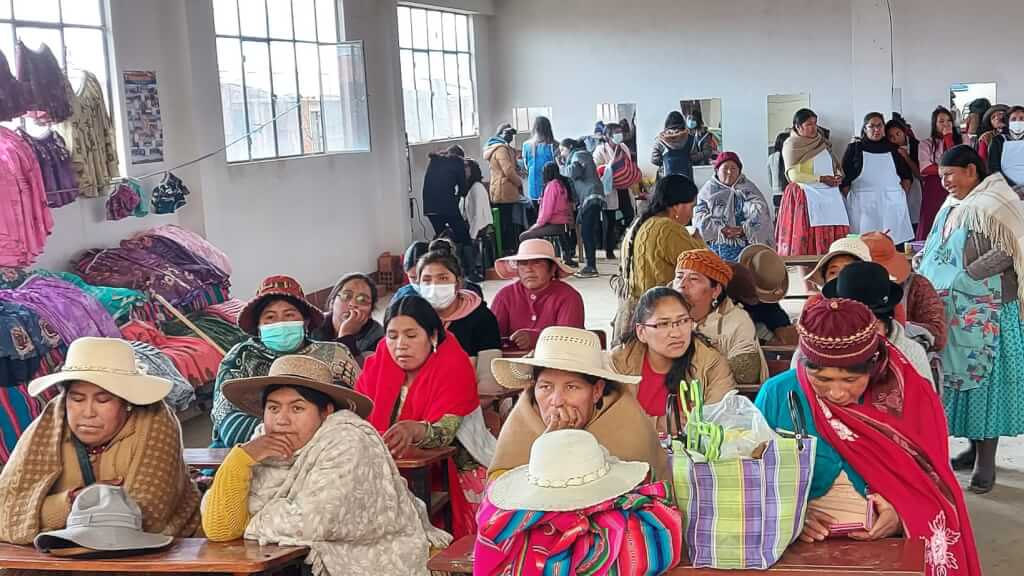
- Details
- By Calixta Choque Churata and Zsófia Sztranyiczki
ICUUW’s project in District 7 of Viacha (near La Paz, the Bolivian capital) – supporting marginalized Bolivian women in becoming a powerful force for change in their families and communities by building income-generating and leadership skills as well as developing capacities for long-term success – resumed in October 2021, following a hiatus of 18 months brought on by the COVID-19 pandemic.
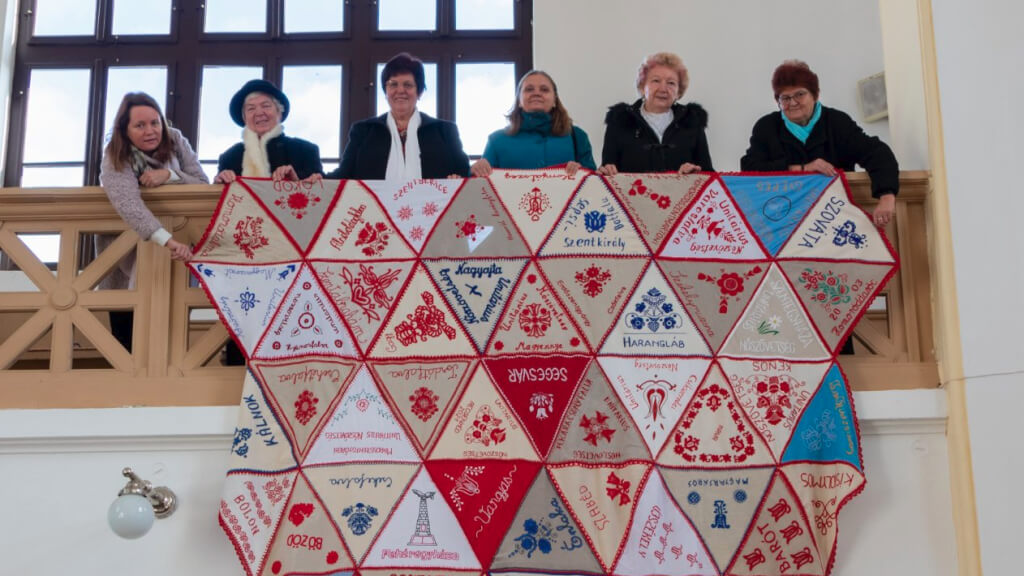
- Details
- By Melinda Simó, leader of the Udvarhely District Women’s Association
A well-known symbol of UNOSZ, the Unitarian Women’s Association of Romania, is the “wandering tablecloth.” As the name indicates, the tablecloth “wanders” from one place to the next: from the site of the UNOSZ annual meeting and conference one year to the location of the following year’s event. The tablecloth is composed of embroidered triangles sewn together, made by and representing each local women’s association. Today, the tablecloth contains approximately 120 triangles.

- Details
- By Karen Kortsch, ICUUW President
Greetings, Members and Friends,
March 11th marks the second anniversary of the day that Covid-19 was declared a pandemic. Since then, our lives have changed significantly; we have had to learn to adapt. As an organization in special consultative status with the UN Economic and Social Council, ICUUW earned the right to send delegates to the annual meetings of the UN Commission on the Status of Women (CSW) in March.
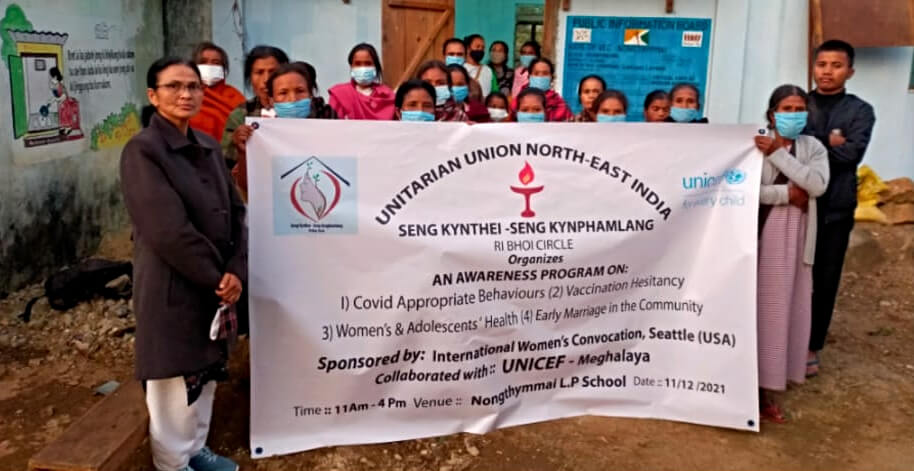
- Details
- By Bahunshisha Mukhim, Executive Member, Seng Kynthei Unitarian Union, North East India and Project Team Leader, Ri Bhoi Circle
On December 11, 2021, under the leadership of project team leader Mrs. D. Bahunshisha Mukhim, the Seng Kynthei, Seng Kynphamlang, Ri Bhoi Circle conducted a COVID-19 awareness program in Nongthymmai, Ri Bhoi District, Meghalaya, India.
The day-long program addressed the following topics: (1) Covid-Appropriate Behaviors (2) Vaccination Hesitancy (3) Women & Adolescent Health and (4) Early Marriage in the Community.